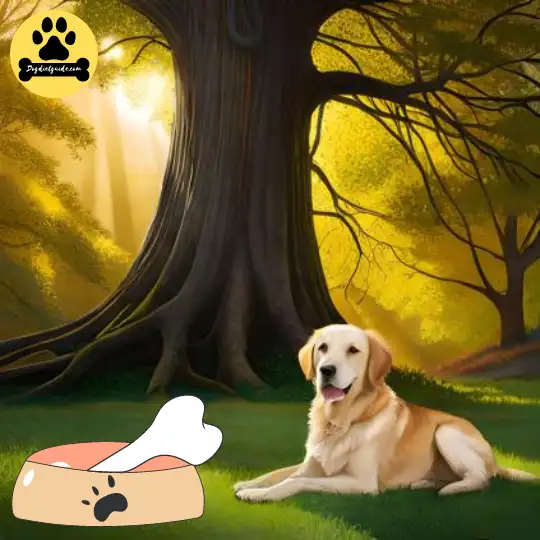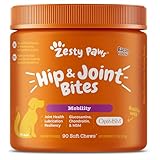The relationship between humans and dogs is one of companionship and care, often extending to the realm of food. As pet owners, we strive to provide our furry friends with the best nutrition possible. However, navigating the vast array of dietary options can be daunting, especially when it comes to unconventional choices like kangaroo bones. Can dogs eat kangaroo bones?
With the rising popularity of kangaroo meat as a lean and sustainable protein source, it’s natural to wonder whether our canine companions can partake in this unique dietary offering.
Can Dogs Eat Kangaroo Bones?
Yes, dogs can eat uncooked kangaroo bones on an occasional basis, but it’s essential to emphasize moderation. These bones can benefit canine digestive health and bolster joint and bone well-being, thus enhancing mobility.
Kangaroo bones for dogs can benefit canines when consumed in moderation and under the right conditions. Kangaroo bones are often considered a natural and nutrient-rich treat for canines. They are a source of calcium and phosphorus, vital for maintaining strong bones and teeth.
However, it’s crucial to steer clear of cooked bones, as they tend to splinter, potentially leading to choking hazards or internal injuries if not handled and provided with caution.
Canine Dietary Needs
Before discussing kangaroo bones, it’s crucial to acknowledge the nutritional requirements of canines. A balanced canine diet includes a combination of protein, fats, carbohydrates, vitamins, and minerals.
These elements contribute to their overall health, supporting muscle development, immune system strength, and bone density.
How to Feed Kangaroo Bones to Dogs.

If you do want to feed your dog bones, consider the following:
-
Cooking bones makes them more brittle, increasing the risk of splintering. Therefore, giving raw bones rather than cooked ones is generally advised.
-
If you give your furry friend a bone, always supervise them while chewing. This allows you to monitor for any signs of distress or potential issues.
-
Opt for bones that are large enough that your dog can’t swallow them whole, and avoid small or sharp bones that may present a choking hazard.
-
Numerous dog chews and toys on the market are expertly crafted to support dental well-being while fulfilling a dog’s natural chewing instincts. These can be a safer option than bones.
-
Before introducing bones or any new food into your dog’s diet, it’s always a good idea to consult your vet. They can provide guidance based on your dog’s individual health and dietary needs.
Remember that while some dogs may enjoy chewing on bones without issue, others may not tolerate them well. Consider your dog’s needs and consult a veterinarian for personalized advice.
kangaroo Bones Benefits For Dogs
-
Chewing on kangaroo bones helps remove plaque and tartar buildup from a dog’s teeth, supporting better oral hygiene.
-
Provide a natural abundance of essential nutrients such as calcium and phosphorus, crucial for maintaining strong and healthy bones and teeth.
-
The natural marrow and connective tissues in kangaroo bones can benefit a dog’s digestive system, helping to support a healthy gut.
-
The cartilage and connective tissues can contribute to joint health, potentially reducing the risk of joint-related issues.
-
Engaging in bone-chewing offers puppies valuable mental stimulation, effectively combating boredom while offering a healthy channel for their innate chewing instincts.
-
Providing bones can offer a sensory experience for dogs, engaging their senses of taste, smell, and touch.
-
Chewing on bones can be a satisfying activity that helps keep pups occupied, potentially reducing excessive snacking and aiding in weight management.
-
Working to chew on bones can provide exercise, engaging jaw muscles and promoting overall physical activity.
-
For puppies, chewing on bones can help soothe the discomfort associated with teething.
-
When given responsibly, kangaroo bones can be a natural, minimally processed treat option.
Potential Risks
Indeed, there are potential risks associated with feeding kangaroo bones to dogs. It’s essential to be aware of these before introducing them into your dog’s diet:
-
Small or sharp bone fragments can break off and become lodged in a dog’s throat, potentially leading to choking.
-
Bones, particularly when cooked or brittle, have the potential to splinter into sharp fragments, posing a risk of injury to a dog’s mouth, throat, or digestive tract.
-
Ingesting large pieces of bone can lead to blockages or tears in the digestive system, which can be a severe and potentially life-threatening issue.
-
Hard bones like kangaroo bones can potentially cause dental fractures, chips, or wear, leading to discomfort and dental issues.
-
Raw bones, including kangaroo bones, can carry harmful bacteria like Salmonella or E. coli, which may pose a risk to dogs and humans.
-
While bones are a source of certain nutrients, an excessive intake may disrupt the overall balance of a dog’s diet, potentially leading to health issues.
-
Some dogs may have sensitivities or allergies to specific proteins or components found in kangaroo bones.
-
Dogs with certain medical conditions, such as pancreatitis, gastrointestinal disorders, or dental issues, may be more susceptible to complications from consuming bones.
-
Some dogs can become possessive or aggressive regarding bones, leading to conflicts with other pets or humans.
-
A dog consuming too much bone material can lead to constipation or other digestive discomfort.
While kangaroo bones offer benefits, they also come with potential risks. One significant concern is the possibility of splintering. Like any other type of bone, kangaroo bones can break into sharp fragments, posing a choking hazard or causing internal injuries if swallowed.
Preparation & Serving Suggestions
If you decide to introduce kangaroo bones into your dog’s diet, taking precautions is essential. Firstly, bones should always be raw and not cooked.
Cooking bones makes them more brittle and likely to splinter. Secondly, choose larger bones less likely to break into hazardous pieces.
Related Post: Can Dogs Have Coconut Sorbet?
Supervision is Key
Whenever offering bones to your furry friend, supervision is crucial. By monitoring their chewing, you can quickly intervene if you notice signs of distress or if a bone appears to be splintering.
Always discard bones that have become small enough to be swallowed whole.
Alternatives to Kangaroo Bones
Alternative options are available if you’re hesitant about giving your dog kangaroo bones.
Commercially available dental chews and toys designed for chewing can provide similar oral health benefits without the associated risks of bone consumption.
Consulting Your Veterinarian
Before introducing any new element into your pup’s diet, including kangaroo bones, it’s wise to consult your veterinarian.
They can provide tailored recommendations considering your dog’s unique health and dietary requirements, guaranteeing that any supplements to their diet are both safe and advantageous.
Related Post: Can Dogs Eat Green Tea Ice Cream?
FAQs
Are kangaroo bones safe for all dog breeds?
Many dogs can enjoy kangaroo bones; it’s essential to consider factors such as size, chewing behavior, and dental health. Consult with your veterinarian to assess whether kangaroo bones are suitable for your dog’s specific needs.
How should I introduce kangaroo bones into my dog’s diet?
Start by offering small pieces of raw kangaroo bones as a treat or chew toy under supervision. Monitor your dog’s chewing behavior and ensure they handle the bones safely before incorporating them into regular meals.
Can kangaroo bones help with dental hygiene in dogs?
Yes, chewing on raw kangaroo bones can aid in dental hygiene by reducing plaque buildup and promoting gum health. However, it’s crucial to supervise your dog’s chewing to prevent any potential dental injuries.
Are there any alternatives to kangaroo bones for dental health in dogs?
Yes, there are several alternatives to kangaroo bones for promoting dental health in dogs, including dental chews, toys, and specially formulated treats. Consult with your veterinarian to explore suitable options for your pet.
What should I do if my dog experiences any adverse reactions to kangaroo bones?
If your dog exhibits any signs of discomfort, digestive issues, or oral injuries after consuming kangaroo bones, cease feeding them immediately and consult with your veterinarian for guidance and treatment.
Can puppies safely consume kangaroo bones?
Puppies have delicate digestive systems and developing teeth, so it’s best to avoid feeding them kangaroo bones until they reach adulthood. Consult with your veterinarian for age-appropriate chew options for your puppy.
Final Thoughts: Can Dogs Eat Kangaroo Bones?
In conclusion, while kangaroo bones can offer some nutritional benefits to dogs, they have potential risks. It’s crucial to approach bone feeding cautiously, ensuring that bones are raw, appropriately sized, and offered under supervision.










![Can Dogs Eat Blood? 7 Side Effects [Expert Opinion]](https://petskor.com/wp-content/uploads/2022/04/Webp.net-resizeimage-12.jpg)
